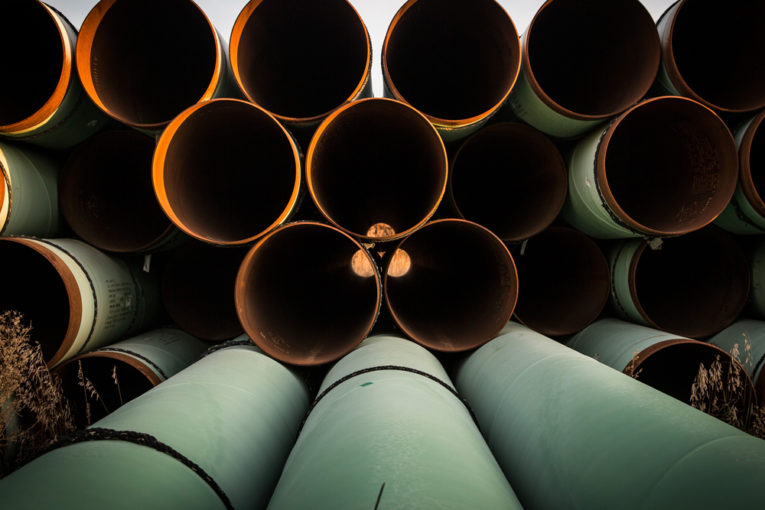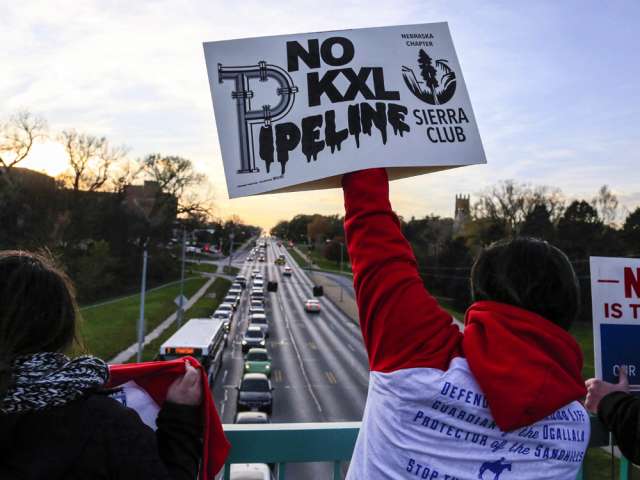
[ad_1]
CALGARY — TransCanada Corp. has asked the U.S. Ninth Circuit Court of Appeals to lift an injunction on its Keystone XL pipeline by the end of this week, as it approaches an internal deadline to begin construction this year on the US$8-billion project.
Without relief from the injunction, TransCanada could delay construction by one year on the 830,000-barrels-per-day pipeline from Alberta to Nebraska. The project would expand the ability of Canadian oil companies to reach the U.S. Gulf Coast refining market through the company’s existing Keystone system.
In a March 11 filing, the U.S. State Department and Calgary-based pipeline giant requested a stay of an injunction granted late last year by a federal judge in Montana, which forced the company to cease all preparatory work on the oil pipeline until the State Department finished a supplemental review of the project.
Up until that point, TransCanada had mowed 1,500 acres in the U.S. to prepare the pipeline right-of-way, begun constructing three work camps and had prepared 11 of 14 pipe yards. The company had to lay off 650 workers on the project when the Montana court decision came down.
The judge issued the injunction in Nov. 2018 because the project’s environmental impact assessment from 2014 was insufficient and fell short of a “hard look” at factors including a change in oil prices and cultural artifacts along the pipeline’s alternative route through Nebraska.
“Absent a stay, thousands of jobs will be lost, hundreds of millions of dollars in taxes and contractors payments will not occur, and TransCanada will lose earnings of over $900 million,” the motion filed Monday states.
It requests that the injunction “should be stayed in its entirety, or at least insofar as it prohibits pre-construction and construction of the pipeline outside of Nebraska.”
The “urgent motion” also requests action by March 15.
In a previous affidavit, filed in early January, Norrie Ramsay, TransCanada’s senior vice-president, technical centre and liquids projects, said that if the company did not get relief from the injunction by March 15, it would not be able to begin construction as planned in August and would therefore miss the 2019 construction season.
Ramsay also detailed the financial consequences of missing that deadline.
“TransCanada estimates that a one-year delay would result in lost earnings before interest, taxes, depreciation, and amortization (EBITDA) of approximately $949 million between March 2021 and March 2022, based on the minimum take-or-pay shipper commitment,” he said in the court filing.
He added the company planned to hire 6,600 workers for the pipeline in 2019 but would be unable to do so and “the total financial harm to third-party construction contractors and U.S. workers would be approximately US$2.56 billion.”
TransCanada spokesperson Matthew John said in an email that it’s impossible to predict how the company’s construction schedule could be impacted because the Ninth Circuit could grant a full stay, a partial stay or no stay.
He also said the company continues to wait on a decision from the Nebraska Supreme Court on a challenge to its route through the state.
The Nebraska Public Utilities Commission approved the Keystone XL pipeline through the state but along an alternative route, rather than the company’s preferred route, which opened the project up to an appeal.
John said a decision on that case could come any day.

Keystone XL has been in regulatory limbo in the U.S. for over 10 years because it was opposed by environmental and landowner groups, and eventually rejected by former president Barack Obama, before being approved through an executive order by President Donald Trump.
In that time, Canadian oil production has surpassed available pipeline capacity and domestic companies are increasingly desperate to see a new export pipeline built.
Investment in the Canadian oil and gas sector is expected to decline by five to 10 per cent this year, and mark a fifth consecutive year of investment declines in the oilsands, said Canadian Association of Petroleum Producers vice-president, oilsands and fiscal and economic policy Ben Brunnen.
“If construction were delayed another year on the Keystone XL pipeline, that would have a substantial impact on the upstream oil and gas sector in Canada,” Brunnen said.
He added that crude-by-rail exports would likely jump from their already record-setting levels because all three active pipeline export proposals from Canada have been delayed, including Keystone XL, Enbridge Inc.’s Line 3 project and the federal government’s Trans Mountain pipeline expansion.
“A year in this business now is a lifetime,” said Tristan Goodman, president of the Explorers and Producers Association of Canada, noting that companies are under stress from a continued lack of export capacity.
“Generally, it’s very frustrating because it’s creating a significant cooling effect on how foreign investors look at Canada,” Goodman said.
• Email: [email protected] | Twitter: geoffreymorgan
[ad_2]
You can read more of the news on source
